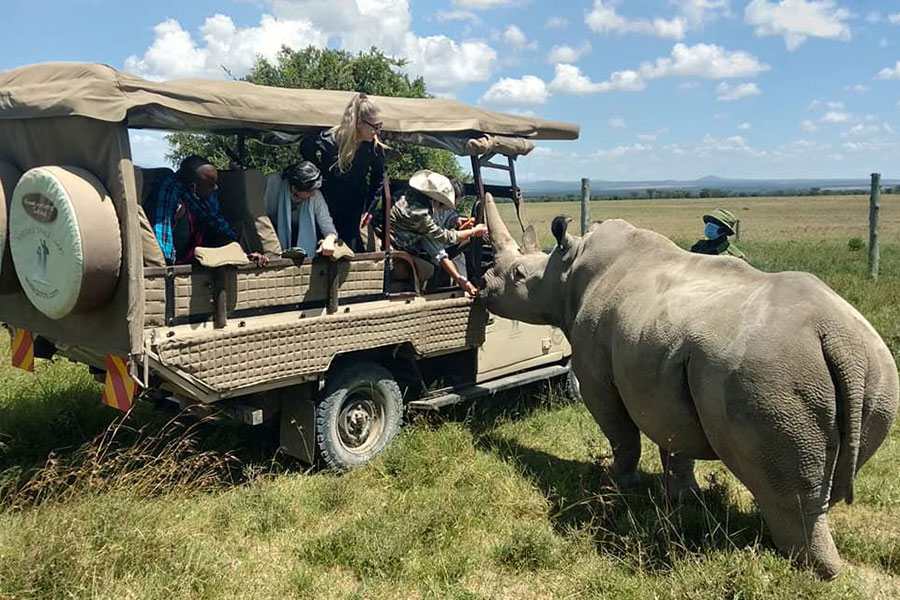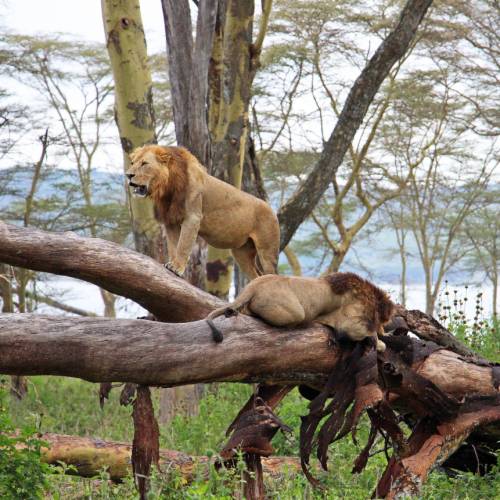Good Suggestions To Picking Mombasa Watamu Snorkeling
Good Suggestions To Picking Mombasa Watamu Snorkeling
Blog Article
What Safety And Security Considerations Do I Need To Be Aware Of When I Am Traveling In Mombasa, Kenya?
It is crucial to be aware of the security and safety concerns when visiting Mombasa in Kenya. This will help ensure a trouble-free and enjoyable trip. Here are a few key points you should be aware of.
1. General Safety
Be informed: Make sure to be up to date with the most recent local news, and also any travel warnings issued by your country.
Sign up at the Embassy of your choice.
2. Health Precautions
Vaccinations: Ensure you are current with your routine vaccinations. You may also want to think about additional vaccines like Hepatitis A, Hepatitis B, Typhoid and Yellow Fever.
Mombasa's malaria has become endemic. Utilize antimalarial medicine as well as insect repellents. Sleep under mosquito nets. Wear long sleeves.
Food safety and water Beware of eating ice, and drink bottled or boiling water. Consume food cooked well. Be aware of street food.
3. Personal Safety
Beware of walking by yourself at night: Stay in well-lit, populated areas. Avoid walking along the beach at night, or in dark areas.
Hotel safes are a good option for storing valuable items such as currency, passports, or other important objects. Do not display expensive items such as electronics or jewelry.
Select a reliable transportation service: Choose licensed taxis, ride hailing services or transportation provided by your Hotel. Avoid taxis with no markings.
4. Local Laws and Customs
Dress modestly. This is particularly important when visiting religious sights. Be mindful of the local traditions.
The Kenyan Drug laws are strict and carry serious penalties. Do not consume illegal substances.
Photography: Request permission to take photos before you photograph people, especially in rural settings or around military and government facilities.
5. Beach Safety and Water Safety
Swim safely: Listen to local advice regarding swimming conditions and currents. Swim in designated areas.
Marine Wildlife: Be aware of marine creatures like jellyfish and sea urchins. When you walk on the beach, make sure you use the proper shoes.
6. Crime Prevention
Petty Crimes: Pickpocketing, bag theft and other minor crime can occur in crowded areas. Be vigilant and ensure that your valuables are close to you.
Scams - Be cautious about strangers who appear to provide too much assistance or a offers that appear too good for true. Only use licensed tour operators.
Emergency Contacts - Learn your local emergency numbers (999) and include the Fire Department (999), and the Ambulance Service (999). Contact information for the embassy or consulate of your country must be saved in your phone.
7. Natural Hazards
Weather: Mombasa experiences a tropical climate. Heavy rains and flooding can occur, particularly during rainy season. Weather forecasts are important.
Sun Protection: Use sunscreen, put on a hat, and drink plenty of fluids to protect against heat exhaustion and sunburn.
8. Travel Insurance
Comprehensive Coverage: Make sure your travel insurance covers medical emergencies, as along with loss, theft and travel interruptions. Verify your policy covers water sports, for instance.
Enjoy your time in Mombasa without worrying about safety or security by keeping these guidelines in your head. View the top mombasa watamu snorkeling for blog info including safari company kenya, mombasa tour companies, safari trips in africa, mombasa travel agency, kenya mombasa holiday packages, kenya safari holiday packages, tour company, africa in kenya, africa in kenya, tours and travel company in kenya and more.
What Cultural Sensitivity Concerns Should Be Considered Prior To The Start Of A Holiday In Mombasa?
It is essential to respect local culture when traveling to Mombasa. This will make you to have a better experience. Be aware of these essential aspects:
1. Please adhere to local dress codes.
Mombasa is home to a significant Muslim population. It is polite to dress modestly in public spaces, at religious sites, or neighborhood areas. This includes covering knees and shoulders.
Beachwear. While it's fine to wear swimwear on the beach itself, you may want to protect your skin while leaving the beach and going to nearby eateries or shops.
2. Religious Sensitivity
Visit mosques. If you want to visit a Muslim mosque make sure you have permission to enter and wear conservative clothing. Women should cover their heads, and everyone should remove their shoes before entering.
Prayer Timings: Keep track of the five daily prayer times and try to be respectful during these periods, particularly when you're near a mosque.
3. Photography Etiquette
Ask for permission to take photographs, particularly in traditional or rural settings. Certain people might be uncomfortable or believe it is intrusive.
Restricted areas: Don't photograph in areas that are sensitive, such as government buildings, military installations or sites of cultural significance, where photography is forbidden.
4. Social Interactions
It's essential to greet your fellow citizens courteously. A common greeting in Swahili is "Jambo" (Hello). While handshakes are common among women and men, for Muslim women it's acceptable to wait for their hand to be extended before they to greet them verbally.
Be respectful of your space. Be aware of any physical contact.
5. Cultural Taboos and Norms
Public Displays The general consensus is that it is inappropriate to show affection in public.
Use of the Left Hand The left hand has historically been considered unclean. Use your left hand when eating, greeting people or exchanging money and goods.
Feet: displaying your feet or pointing at people with your feet is considered to be disrespectful.
6. Language and Communication
Basic Swahili Learn some basic Swahili phrases will help you establish relationships and show respect to the locals. The most popular Swahili phrases include "Asante" meaning "thank you", and "Habari" that means "How are you?" ).
Politeness. Communicate politely and patiently. Kenyans are adamant about respectful and courteous interactions.
7. Respect Local Customs
Be respectful of the customs and customs. Follow the hosts' lead when attending an event.
Bargaining is commonplace in local markets and shops. But, it must be conducted with respect and with good humor. It's a custom of the community not an aggressive one.
8. Alcohol and Smoking
Alcohol is widely available in all regions, but it shouldn't be consumed in public. Avoid public drunkenness.
Smoking in public areas is not allowed. Smoking areas are usually identified.
9. Environmental Respect
Littering - Avoid littering, and dispose of trash properly. Be respectful of wildlife and natural habitats.
Conservation: Contribute to conservation efforts and respect local wildlife and habitats. Beware of buying products that contain endangered species.
10. Supporting Local Communities
Local Businesses: Help support the market in your area, the local artisans and local businesses to help boost the local economy.
Responsible Tourism: Make sure you select eco-friendly tourism which benefits the local population.
These cultural sensitivity guidelines will allow you to enjoy a a meaningful and respectful trip in Mombasa. They will also increase your understanding and appreciation of the local culture. View the top rated island snorkeling in mombasa for website examples including african safari excursions, mombasa packages, kenya tour operator, holiday packages mombasa, kenya africa travel, kenya safari tours, beach in mombasa, trips to kenya africa, kenya africa travel, kenya travel packages and more.
What Safari And Tour Plans Do I Need To Be Aware Of For My Trip To Mombasa Kenya?
If you are planning a trip or safari in Mombasa Kenya It is crucial to take into consideration all aspects that can make your trip memorable. Here are a few important tips to be aware of:
1. Select an Safari Tour Operator
Reputation: Choose an operator with good reviews. Look for operators accredited by the Kenya Association of Tour Operators (KATO).
Compare packages from different tour operators. The packages range from affordable to extravagant and may differ in terms of duration and activities offered.
Guides: Check that the tour operator offers expert, knowledgeable guides. They must be vetted by relevant associations.
2. Most sought-after Safari Destinations starting from Mombasa
Tsavo national park: Kenya's biggest game reserve is split into Tsavo West (east) and Tsavo West (west). The park's varied wildlife includes elephants, rhinos and lions.
Amboseli National Park has a large elephant population and breathtaking views to Mount Kilimanjaro.
Shimba Hills National Reserve - Near Mombasa. It has beautiful landscapes, as well as rare species like the Sable antelope.
Maasai Mara. Although further than Mombasa, the Great Migration is celebrated in the Maasai Mara region and offers an unforgettable experience with wildlife.
3. Types of Safaris and Tours
Game Drives. Traditional safaris typically include 4x4 game drives, which offer close encounters with wildlife.
Walking Safaris: Guided walking tours provide a unique way to experience the wild and discover small flora and fauna.
Balloon Safaris can be found in parks such as Maasai Mara and offering an aerial perspective of the wildlife.
Beach and Bush Combos Beach and Bush Combos Combine a safari experience and a time spent at the stunning Mombasa beaches for an unforgettable experience.
Cultural Tours: This tour includes visits to local villages or historical sites such as Fort Jesus, Mombasa Old Town and Fort Jesus.
4. Timing and Duration
Best Time to Visit : Wildlife viewing is best in the dry season from June to October. Animals congregate around water sources. The Great Migration takes place in the Maasai Maasai generally between July and October.
Safaris can range from short-term trips to longer-term adventures. Consider your schedule and how much time you want to spend in the wilderness.
5. What should you pack
Wear neutral clothing that is light, breathable and washable. Include long sleeves, pants and socks to protect you from mosquitoes.
Comfortable walking or boot shoes especially when walking, are vital.
Accessories: Make sure to wear a wide-brimmed sun hat, sunglasses with UV protection, insect repellent and sunscreen.
Gear: Binoculars are vital to wildlife photography and viewing. A camera that is reliable, with spare batteries and memory cards, is crucial.
Medication: Carry any necessary personal medication. Also, consider carrying anti-malarial medications as well as a basic first aid kit.
6. Health and Safety
Immunizations. You should get the recommended vaccines.
The best way to prevent malaria is to use insect repellents, wear long-sleeved clothing at night, and look into antimalarial medication.
Food and water safety Drink only bottled and pure water. Restaurants with a good reputation.
7. Payments and Costs
Budgeting is essential. Planning your budget is crucial. Consider all-inclusive packages, which include accommodations, meals, activities and more.
Payment methods: Most operators accept credit card and bank transfer. Check payment options including deposits that are required.
8. Environmental and Ethical Issues
Eco-Friendly Operators : Choose those who support sustainable tourism.
Wildlife Protection - Protect the wildlife. Keep a safe range and don't disturb the animals. Beware of buying products that contain endangered species.
9. Travel Insurance
Insurance Coverage: Ensure your travel insurance covers for safari activities as well as medical emergencies.
10. Bookings and Confirmation
Advance booking Safaris are very popular and often book out quickly especially during peak season. Book ahead.
Confirmation : Confirm with your tour operator all the details including pick-up times, the itinerary and contact details.
If you consider these aspects when you think about them, you can plan a an enjoyable and well-organized safari starting from Mombasa which will enrich your Kenyan trip. Follow the recommended island snorkeling in mombasa for more advice including trips to kenya, kenya mombasa holiday packages, kenya mombasa holiday packages, african safari africa, kenya travel, african safari kenya, tour company, kenya travel, mombasa packages, african safari tours and more.